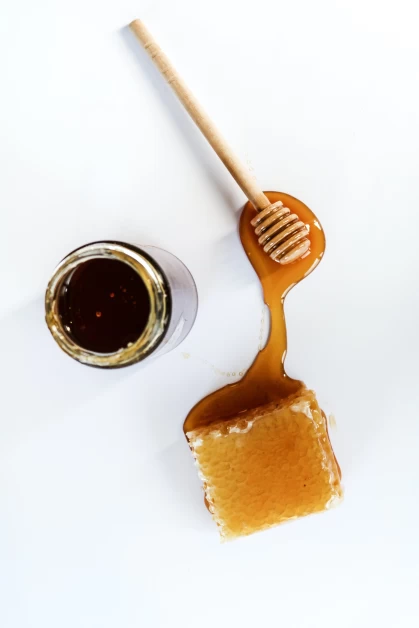Table of Contents
Introduction
Manuka honey is a highly prized and sought-after type of honey known for its numerous health benefits. Among the most expensive honey varieties in the world, Manuka honey can sell for hundreds of dollars per jar. In this article, we will explore why Manuka honey is so expensive, its unique characteristics, and the benefits it offers for the skin.
The Difficulty of Harvesting and Scarcity of Supply
Manuka honey is made from the nectar collected by bees from the blooms of the Manuka tree, which only grows in New Zealand. This exclusivity makes Manuka honey rare and limited in supply. The Manuka trees only bloom for a few weeks each year, usually in January or February. Beekeepers have to move their hives early to allow the bees to forage the precious crop.
Harvesting Manuka honey is a challenging process due to the remote locations of the Manuka forests. Beekeepers often use helicopters to transport the hives to these areas. The hives are checked frequently, and the honey is harvested quickly once the bees cap a majority of the wax combs. This ensures the production of fresh, high-quality honey.
Characteristics of Manuka Honey
Manuka honey is known for its unique characteristics. It is dark in color with a slightly bitter taste. As raw honey, it may crystallize over time, but this does not affect its quality. Simply warming the honey will return it to a liquid state.
One of the key properties of Manuka honey is its high concentration of methylglyoxal (MGO). This compound gives Manuka honey its strong healing properties. Lab tests verify the level of MGO in Manuka honey, and it receives an MGO score ranging from MGO 50+ to MGO 1356+. The higher the rating, the more methylglyoxal the honey contains.
How Manuka Honey Works for the Skin
Manuka honey has been extensively studied for its benefits to the skin. Here are some of the reasons why Manuka honey is excellent for skin care:
-
Moisturizing and Nourishing: Manuka honey is deeply moisturizing and nourishing to the skin. It can help balance the skin’s pH levels and remove dead cells, resulting in improved skin appearance.
-
Anti-Inflammatory and Antibacterial: The anti-inflammatory and antibacterial properties of Manuka honey make it effective against acne and other skin issues. It can reduce bacteria in the mouth and gums, promoting improved oral hygiene.
-
Antioxidant-rich: Manuka honey is rich in antioxidants, which bind to free radicals in the body and slow down cellular damage. This can help prevent premature aging and support overall skin well-being.
-
Healing and Wound Care: Manuka honey has been used for centuries for its healing properties. Applying Manuka honey to cuts, scrapes, and burns can aid in the healing process by reducing the chance of infection and promoting tissue regeneration.
Medical Uses and Research
Manuka honey’s effectiveness in wound care and tissue regeneration has been well-documented. In fact, it has been found to be more effective than Silver Sulfadiazine cream in treating burn victims. Hospitals often use Manuka honey in place of traditional treatments for burns due to its superior healing properties.
Research has shown that Manuka honey is effective against various strains of bacteria, including those that are resistant to antibiotics. Scientists have yet to discover any bacteria that are resistant to honey, making it a valuable alternative for treating infections.
Using Manuka Honey for Skin Care
With its numerous benefits, Manuka honey can be incorporated into your skincare routine in various ways:
-
Facial Masks: Mix Manuka honey with other natural ingredients like yogurt, oatmeal, or aloe vera gel to create a nourishing facial mask. Apply it to your face, leave it on for 15-20 minutes, and rinse off for soft and glowing skin.
-
Spot Treatment: Dab a small amount of Manuka honey onto acne spots or blemishes to help reduce inflammation and promote healing.
-
Cleanser: Use Manuka honey as a gentle cleanser by applying a small amount to damp skin, massaging it in, and rinsing off with warm water. This can help remove impurities and moisturize the skin at the same time.
-
Lip Balm: Apply a thin layer of Manuka honey to your lips to moisturize and protect them from dryness and chapping.
Where to Find Manuka Honey for Skin
When purchasing Manuka honey, it is important to ensure you are getting genuine, high-quality honey. About Manuka Honey (https://aboutmanukahoney.com) offers a range of authentic Raw Manuka Honey imported from New Zealand. Their selection includes D’urville Island Manuka, lab-certified as MGO 152+, New Zealand Honey Company MGO 263+ Manuka, and the rare Limited Reserve Manuka Honey with an impressive MGO 1200+ rating.
Conclusion
Manuka honey is not only delicious but also offers numerous health benefits, particularly for the skin. Its scarcity, difficulty of harvesting, and unique properties contribute to its higher price compared to other honey varieties. With its moisturizing, antibacterial, and healing properties, Manuka honey can be a valuable addition to your skincare routine. Incorporate this natural wonder into your daily beauty regimen and experience the transformative effects on your skin.

